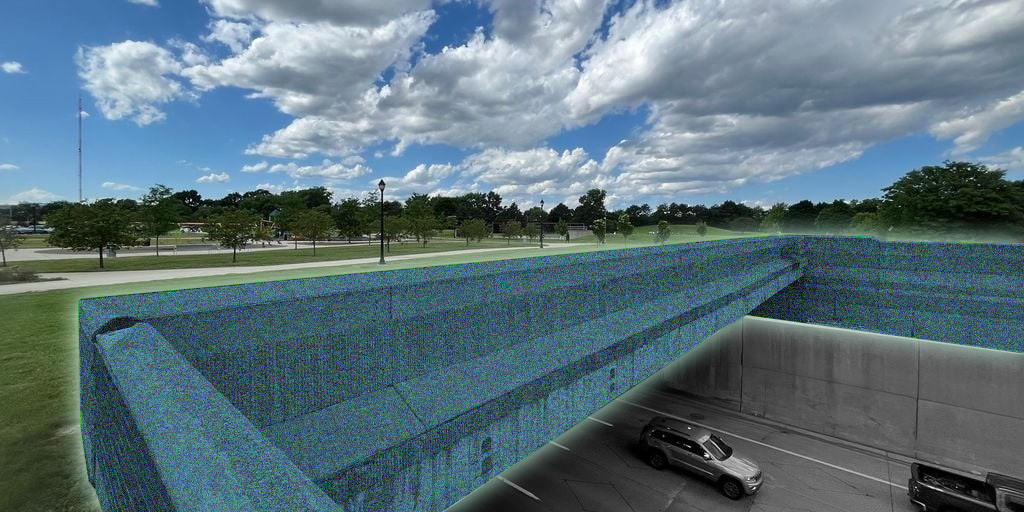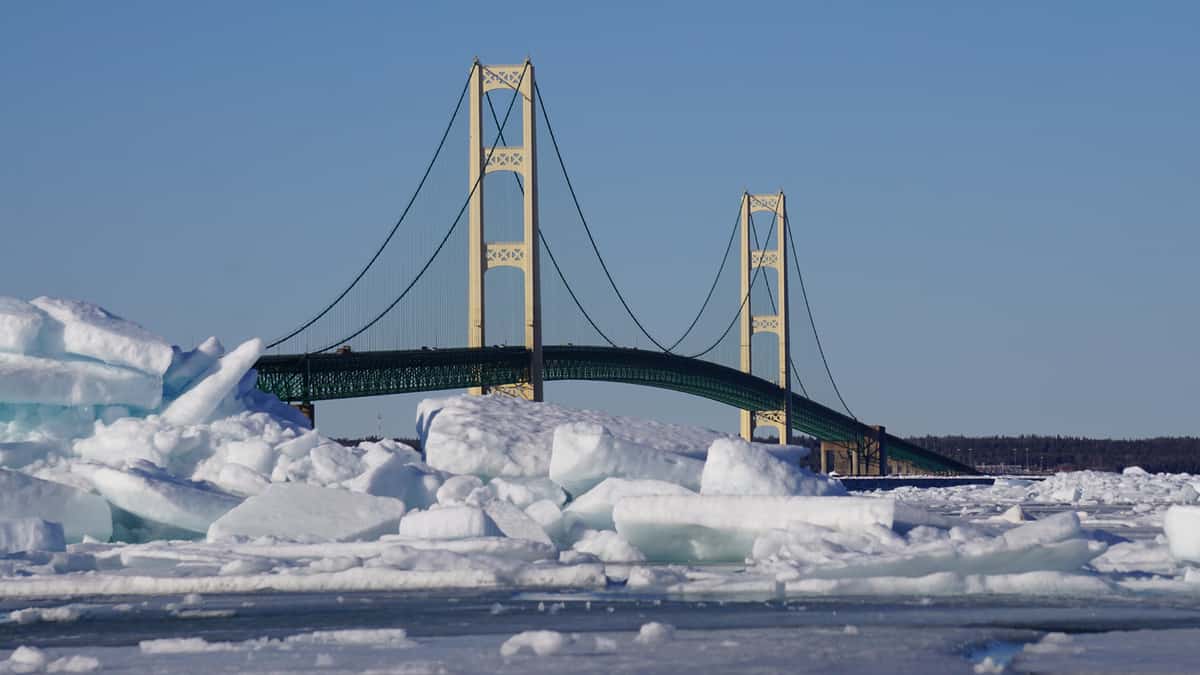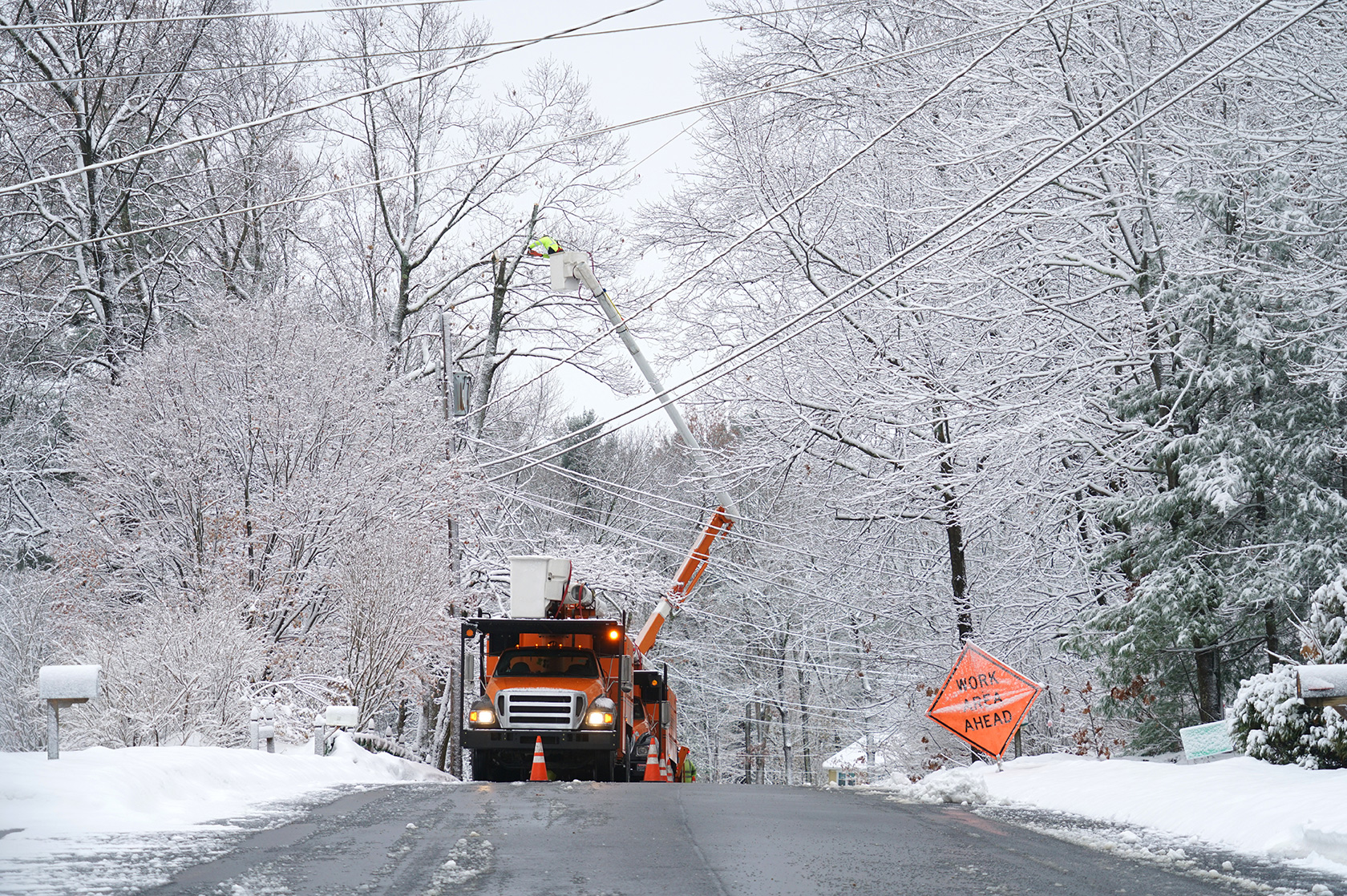Three Key Facts:
-
- Due to hazardous icicles forming over the busy I-696 freeway in Oak Park, Michigan, a large pedestrian bridge is being replaced which will save roughly $300,000 in tax dollars each year that is spent to periodically stop traffic and remove the hazard.
- The bridge replacement is being paid for, in part, by a $21.7 million grant from the U.S. Department of Transportation through the Reconnecting Communities Pilot Program which is funded by the Biden-Harris infrastructure law.
- The bridge connects a large Jewish community with local synagogues, businesses, and other community elements and allows them to worship and connect with the community during the Sabbath when Orthodox Jews do not drive.
-
“In the wintertime, you see all the icicles up there. It’s scary to know that if one of those icicles hits the right way it’ll go right through your windshield.” Those are the words of Sandy Singal, manager of Kravings, a kosher deli in Oak Park, Michigan.
Those icicles are formed in the winter months under the pedestrian bridge over the heavily traveled I-696 freeway in the metro Detroit area. But the Victoria Park Plaza Bridge is not the average pedestrian bridge. It is a 700-foot-wide-by-180-foot-long structure, featuring a park with grass, trees and a playground.
During winter, freezing nights and warmer days cause water to seep through the structure’s joints, forming dangerous icicles that hang over the freeway below.
The Michigan Department of Transportation (MDOT) spends around $300,000 periodically stopping traffic to remove the large, dangerous icicles that could cause serious injuries or accidents if they fell and hit a car on the interstate below. With about 120,000 drivers passing under the bridge daily, it’s a critical safety measure to prevent potential disasters.
Thanks to a $21.7 million grant from the U.S. Department of Transportation (USDOT), funded through the Biden-Harris infrastructure programs, the bridge is about to be replaced. The total projected project will cost $43 million with remaining funds coming from a matching state grant and other federal infrastructure funding sources. Construction will begin in early 2025.
“Rebuilding the Victoria Park Plaza Bridge over I-696 will connect communities and support good-paying construction jobs,” said Michigan Governor Whitmer in a release. “We are fixing the damn roads and bridges across Michigan without raising taxes by a dime.”
MDOT project manager Abdul Siddiqui said the new bridge will be built using strong, steel beams shaped like the letter “I” and will have a reinforced, durable concrete surface to make it sturdier. “We’re reducing the number of joints significantly,” Siddiqui told The Detroit Jewish News.
Michael Frezell, deputy communications director at MDOT, explained, “The surface of the deck will be sloped in such a way to channel drainage away from the bridge joints.”
The bridge, one of three similar bridges in the area, was constructed in 1985 as a compromise between the state and local residents, businesses, and governments. Jewish leaders in Oak Park, some businesses, and the cities of Lathrup Village and Pleasant Ridge had sued the state to stop construction of part of I-696 because it would split the Jewish community there.
According to the State of Michigan’s press release, “Oak Park is one of the oldest communities and is arguably at the heart of Detroit’s suburban Jewish community with a high concentration of religious, educational, and retail facilities.” Orthodox Jews do not drive during the Sabbath so the bridge allows them to worship and be connected to their community during this time thanks to the Victoria Park Plaza Bridge.
Several attempts were made over the years to resolve the dangerous situation caused by the icicles. However, none were successful, so replacement of the bridge was the only remaining option.
MDOT has held public meetings, the most recent in spring of 2023, and created a website to solicit input from locals before the new bridge design is finalized. Project manager Siddiqui said that people want “to keep what is there currently . . . the play structures and the grassy areas” and that they also “want to congregate under some pavilions, to have picnics there in the shade.”
The $21.7 million USDOT grant comes from the first-of-its-kind Reconnecting Communities Pilot Program (RCPP) which is funded by the Biden-Harris infrastructure law. It funds projects “that aim to connect neighborhoods back together by removing, retrofitting, or mitigating transportation barriers.”





